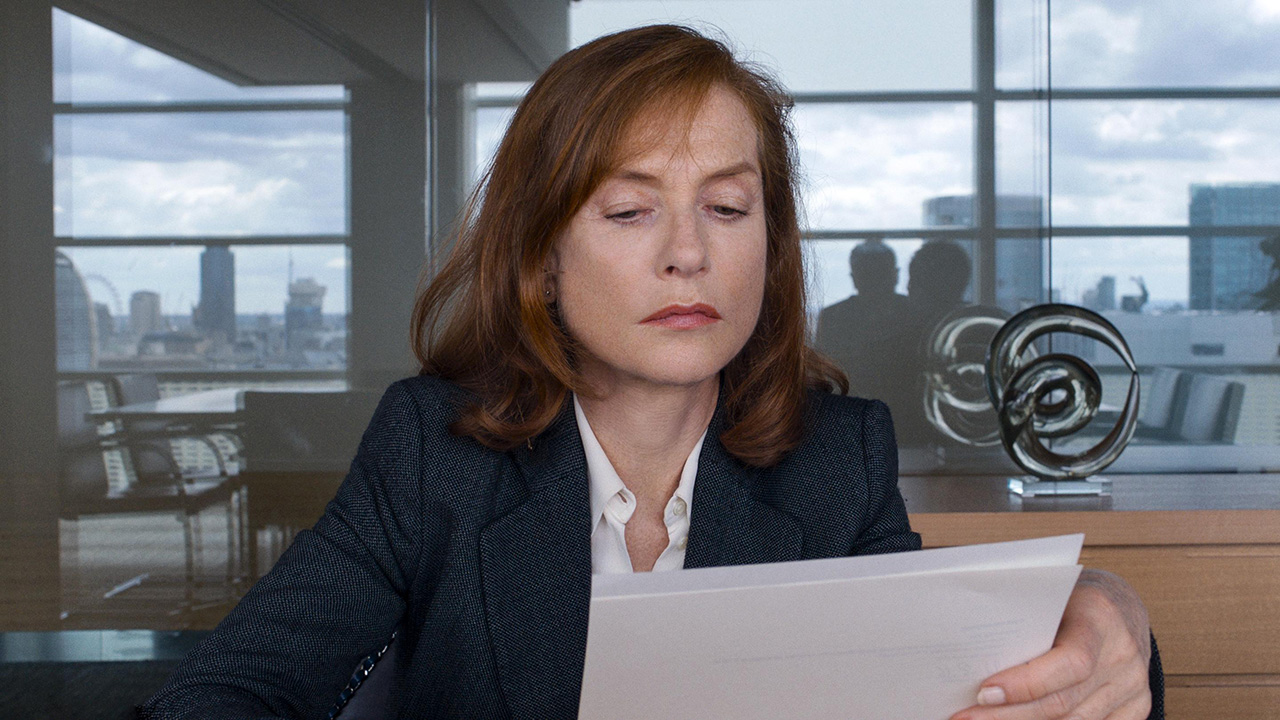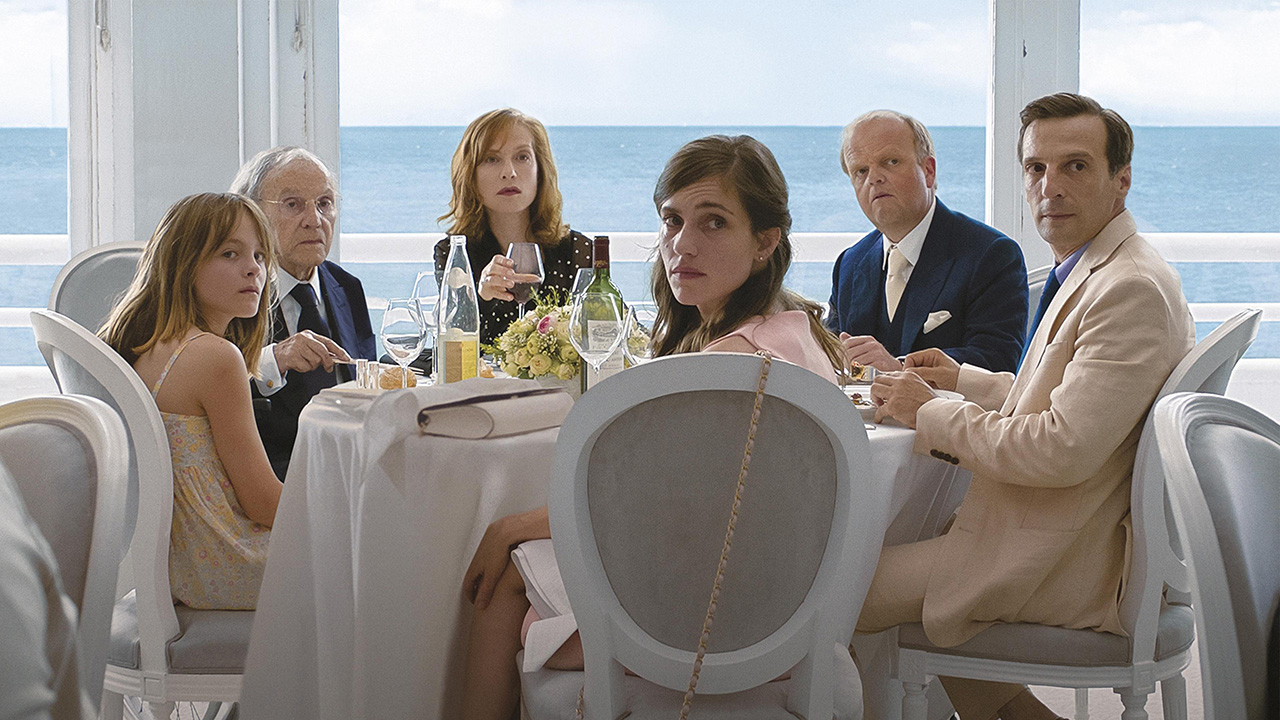Cannes 2017: "No other filmmaker so teases and tortures..." Our thoughts on Michael Haneke's Happy End

Going for an historic third Palme d’Or with Happy End (the title, quelle surprise, is ironic – this is the guy who made both versions of the ultra-gruelling Funny Games), Austrian auteur Michael Haneke returns to many of his pet themes: bourgeois guilt, intergenerational conflict, surveillance, sociopathic kids, racial conflict, euthanasia. But to dismiss Happy End as a greatest-hits combo or a 75-year-old filmmaker playing it safe – or, indeed, having nothing new to say – would be harsh indeed, for Haneke’s mastery of technique and theme is very much evidence. It makes for deliciously uncomfortable viewing.
Headed up by octogenarian Georges (Jean-Louis Trintignant), the Laurent family own a construction business in Calais that’s now ran by Anne (Isabelle Huppert), whose 12-year-old niece, Eve (Fantine Harduin), comes to stay when her mother enters a coma following a drug overdose. Anne’s father is Thomas (Mathieu Kassovitz), remarried with a baby but conducting an affair, while the negligence of Anne’s youngest son, Pierre (Franz Rogowski), is responsible for a bad accident on the building site.
Adding to this simmering mix is the Moroccan couple who wait on the family and are subjected to the kind of racist condescension that underpins so much of Get Out, and the immigrants who work the site – in one crucial scene they step startlingly forward to give face to the refugees who so often occupy the backdrops of the frame.

Haneke, as ever, is a master of fluid, textured composition, demanding viewers scrutinise every inch of the screen in search of clues and meaning; no other filmmaker so teases and tortures with the withholding of information. Indeed, a handful of key scenes play out at a distance, faces not quite clear and dialogue denied, and for much of Happy End’s 107-minute running time, its steady swirl of riveting scenes refuse to lock into focus. The tease is thrilling.
Come the end, many if not most of the secrets are given up, though Haneke steers clear of the didacticism that he’s sometimes given to. And while Happy End is not quite the director on his A-game, it does linger in your brain long after the credits roll, worming ever deeper. Like Benny’s Video, Funny Games, The Piano Teacher, Time of the Wolf, Hidden, The White Ribbon and even Amour, Happy End is a horror movie, of sorts – it certainly offers a diabolic take on prosperity. That it’s also bleakly funny is its most potent shock tactic of all.
Bringing all the latest movie news, features, and reviews to your inbox
Jamie Graham is the Editor-at-Large of Total Film magazine. You'll likely find them around these parts reviewing the biggest films on the planet and speaking to some of the biggest stars in the business – that's just what Jamie does. Jamie has also written for outlets like SFX and the Sunday Times Culture, and appeared on podcasts exploring the wondrous worlds of occult and horror.


